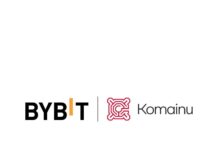
The idea of “Trusted Computing” is neither new nor complicated and involves code being electronically signed so that it cannot damage your computer. The idea is to “certify” software to avoid it causing the computer to crash or any other negative effects.
The practical problems of such technology become obvious if you use either open-source or free software – the cost of the licenses charged in order to “trust” a piece of software would become astronomical and so suddenly you must use Microsoft Office and not Open Office, Adobe Photoshop and not the GIMP.
With every update and change to the trusted software new “Trusted Computer” certificates would have to be issued. If a software vendor has not paid their license or has fallen out of favour, the license is revoked – the upshot of which is that you can no longer use the software you may have paid thousands for – perhaps even losing the documents you’ve created.
Suppose instead, you trust a network of your peers – in fact, the biggest single computer network on the face of the planet. Bitcoin is an exciting currency because unlike, for example, the US dollar, it has inherent value – it takes electricity and time to “mine” bitcoins and so they have value. But more exciting than the currency is the blockchain – the ledger that records when a coin is mined or spent – and part of the reason this is exciting is because you can record information with every transaction – whether it be a photo of your cat, your marriage vows or the sale of a house.
The blockchain is peer-to-peer – this means that eventually everybody who mines bitcoins and many others as well will have the same information – with a date and time stamp and an electronic key to which only you have the other half. In other words, you can prove you uploaded a picture of your cat because millions of other people have recorded the same information at the same time. There are many apps you can use to do this including the open-source Satoshi Proof for Android – suddenly you can prove, with millions of witnesses, that you were the first to have a certain idea.
The Internet of Things is the reason why suddenly we’ve all been seeing “ipv6” everywhere – the number of devices attached to the internet has become so large that 255+255+255+255 is no longer enough addresses to identify them all; televisions, cars, thermostats, routers, phones, watches, CCTV cameras, hard drives and other devices attached to the internet. This might sound useful; a television that downloads your favourite programme and a hard drive allowing you access to your documents anywhere in the world but all these devices need software (often called firmware) to run them. Televisions have been shown to be hackable, potentially giving the ability to add malicious code to the device and Iomega drives were released with security settings off as default – ensuring all your personal documents were available to anyone with an internet connection.
Imagine that your thermostat (or TV, fridge, watch, printer) downloaded its software from the blockchain? When the device is originally produced, the designers make a small blockchain transaction and place the public (spending) key into Read Only Memory (ROM) within the hardware. The exact logistics would be up to the hardware manufacturer at this point – but the upshot is that only the entity (in this case the thermostat designer) would be able to encrypt messages that could be transmitted and then validated and decrypted by the unchangeable public key contained on the device (such as the thermostat). This could be the checksum of the current version of the thermostat’s software / firmware or even the most up-to-date version of the entire firmware itself.
Any attempt to forge this would simply be rejected outright by the thermostat.
One step further – such a forgery would be automatically noticed and witnessed by the largest synced network of computers on the planet – The Blockchain – free, open-source Trusted Computing that can actually be trusted.
[newsletter_form lists="1"]










